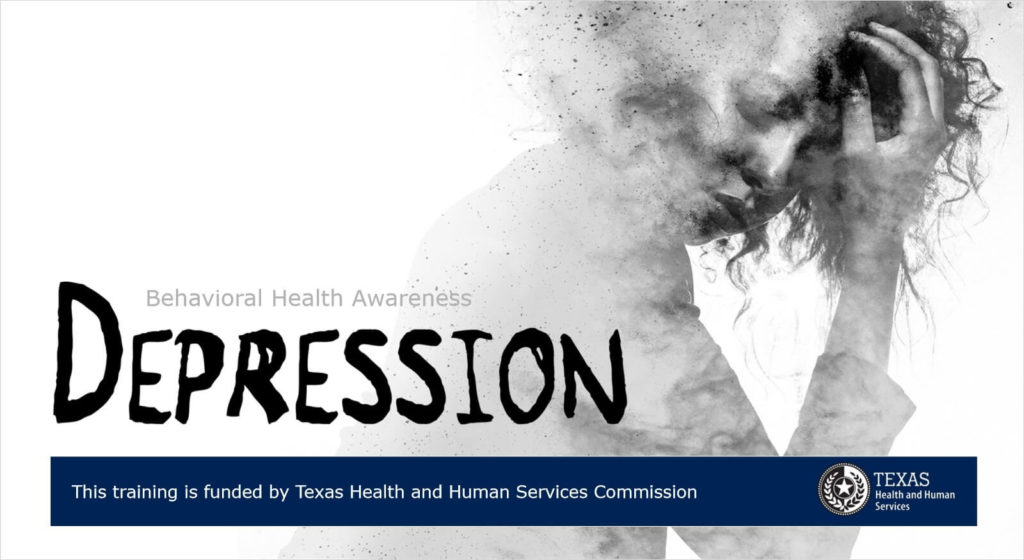Depressive disorder, often referred to as depression, is a complex condition. It is more complicated than feeling sad or just going through a tough time. Depression is a real mental health condition that is influenced by a combination of factors and needs to be taken seriously. When the right set of ingredients come together for someone, the symptoms of depression kick in and can be devastating if left untreated.
Postpartum depression is a common and potentially serious condition typically diagnosed during or after pregnancy. According to the American College of Obstetricians and Gynecologists (ACOG), “depression is a common complication of pregnancy with potentially devastating consequences if it goes unrecognized and untreated1.
During depressive periods, people have feelings of sadness, numbness, or a lack of energy that can last days, weeks, or months. People may experience changes in sleeping, eating, or hygiene routines and may stop getting together with friends or going to work. They may also find that they are no longer interested in things they used to find enjoyable, such as hobbies. People with postpartum depression may also experience distressing thoughts and feelings about their baby, such as feeling distant from them, doubting their ability to care for them, and thinking hurting themselves or their baby2.
Sometimes, individuals experiencing a depressive period may feel hopeless or that life is no longer worth living, which can come with suicidal thoughts. It is important to look out for suicidal thoughts in people with this condition. For more information on suicide, you can visit the suicide page.
It is likely that you know someone who has depression because of how common the condition is. Over 7% of the population in the US has experienced at least one major depressive episode in the past year4. Recognizing the signs and symptoms of depression allows you to support those in your life who may live with this condition. You might be dealing with depression yourself, or you might know someone who is. Either way, help is available.
Over
7%
of the population in the US has experienced at least one major depressive episode in the past year.
1in5
women experience postpartum depression in their lifetime3.
Common Signs and Symptoms of Depression
Depression can affect individuals differently, but typically the symptoms affect how you feel, think, and handle activities of daily life. Symptoms are also usually present for more than two weeks. Some of these common symptoms include:
- Persistent sad, anxious or “empty” mood
- Loss of energy
- Lack of concentration
- Feelings of guilt, worthlessness or helplessness
- Feeling agitated or irritable
- Increased sense of guilt
- Changes in appetite or sleep — increase or decrease
- Lack of interest in previously enjoyable activities
- Feelings of hopelessness
- Feelings and thoughts of wanting to die
- Self-harm or suicidal behavior
Treatment for Depression
A therapist or physician can help provide treatment options such as psychotherapy, medication, or lifestyle changes.
Additional Information on Depression and Postpartum Depression
For additional information about different forms of depression, risk factors, and in-depth information on the different kinds of treatment available for depression you can visit the following:
If you experience difficulty accessing care or if you’re having issues with your health plan, the Texas Department of Insurance and the Texas Health and Human Services Commission’s Office of the Ombudsman might be able to help. They can also help you learn more about your rights.
Sources
1. Statement by ACOG District IX Chair (2020)
https://www.2020mom.org/acog-statement
2. CDC, Reproductive Health, Depression During and After Pregnancy (2020)
https://www.cdc.gov/reproductivehealth/features/maternal-depression/index.html
3. According to Vital Signs: Postpartum Depressive Symptoms and Provider Discussions About Perinatal Depression — United States, 2018, CDC (2020)
https://www.cdc.gov/mmwr/volumes/69/wr/mm6919a2.htm?s_cid=mm6919a2_w
4. National Institute of Mental Health: Depression Statistics.
https://www.nimh.nih.gov/health/statistics/major-depression.shtml#part_155029

Learn more about Depression and other behavioral health conditions at our eLearning Hub. The quick, informative courses are designed to equip you with knowledge, resources, and hope for the future – for yourself or for someone else you care about.
